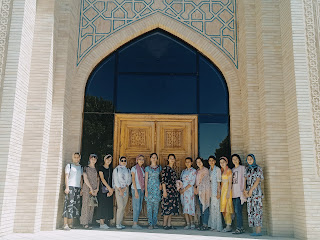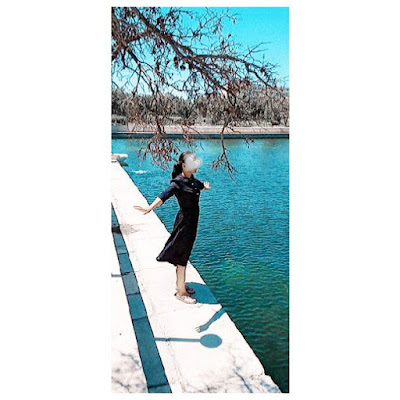Bakhouddin Nakshband
Hello, you are in blog of Señorita👀
Well, today our trip was in Bakhouddin Nakshband.
Are you ready to get information about it?
Then we will begin!
The memorial complex of Bahouddin Naqshbandi, is located 12 km from Bukhara in the native place of famous sufi philosopher Khoja Bakhouddin Naqshbandi. It consisted of the tomb of the sheikh, mosque, khanaka, minaret and a small courtyard with a pond. There is an opinion that if you walk three times from Bukhara to the mausoleum, it will be equal to one hajj, because the ancient mausoleum is considered to be the Central Asian Mecca. You can learn about Sufism and ideas related to it in this place while in Uzbekistan Tours.
History Of The Memorial Complex Bahouddin Naqshbandi:
The Architectural Ensemble Of Bahouddin was built up over five centuries. The ensemble took to the 16th century, form of a combination of the necropolis of ceremonial building. In 1544 by Abdul Aziz Khan Naqshbandi’s disposal has been issued in the form of ground vault dakhma with marble carved railing. A little further was built khanaka - the largest of the known buildings such appointment. Adoration of the holy tomb of Sheikh equated Hajj to Mecca. Try this while you are in Uzbekistan Tours.
The Baha-Ud-Din Naqshband Bokhari Memorial Complex is rectangular courtyard where the tomb of Saint Sheikh. The modern aivan with wooden columns is decored the central courtyard. Later here was formed a vast necropolis – tomb of Bukhara emirs. Decorated mosques Muzaffarkhan and Hakim Kushbegi are struck by its beauty, which formed the courtyard with creek around the mausoleum. The arches in national style, blue domes, different gate and columns were built here. One of the most beautiful of architectural ensemble of Bukhara, the complex Bahauddin Naqshbandi meets pilgrims with silence and solitude. It is one of the tourist attractions in Bukhara.
According to Naqshbandi, if person works manually it gives him the right to independence in the work, actions and thoughts. His famous statement: “Allah is in mind, and hands – in the work”. There is a wishing stone – Sangi Murod inside the wall of the mausoleum. Believers from different countries come here to ask for the fulfillment of wishes. It is believed that Naqshbandi averts disaster. Hence, it is one of the best Places To Visit In Bukhara.
The memorial complex of Bahouddin Naqshbandi is one of the complexes which also includes the museum, keeps the true information about Sufi and Sufism: Sufi wearing, books and other expositions.
The end!
It was our last practice day😉
Thanks for your attention!














Комментарии
Отправить комментарий